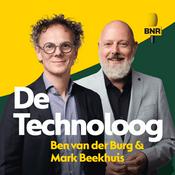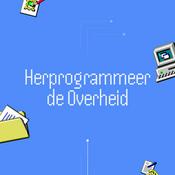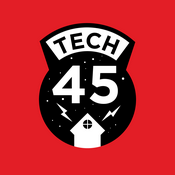182 afleveringen
- Jon and Ben discuss the highlights of the Rust 2024
Edition.
Contributing to Rustacean Station
Rustacean Station is a community project; get in touch with us if you’d like to suggest an idea for an episode or offer your services as a host or audio editor!
Twitter: @rustaceanfm
Discord: Rustacean Station
Github: @rustacean-station
Email: [email protected]
Timestamps & referenced resources
[@03:05] - RPIT lifetime capture rules
[@08:00] - let chains in if and while
if let temporary scope
Mara’s post on “super let”
Tail expression temporary scope
[@19:15] - Match ergonomics reservations
[@24:49] - Unsafe extern blocks
[@29:15] - Unsafe attributes
[@32:03] - unsafe_op_in_unsafe_fn warning
[@34:51] - Disallow references to static mut
[@39:20] - Never type fallback change
[@43:33] - Macro Fragment Specifiers
[@47:47] - gen keyword
[@49:36] - Changes to the prelude
[@50:32] - Add IntoIterator for Box<[T]>
[@56:03] - Newly unsafe functions
[@58:51] - Rust-version aware Cargo resolver
[@1:03:03] - Cargo table and key name consistency
[@1:03:57] - Reject unused inherited default-features
[@1:05:37] - Rustdoc combined doctests
[@1:07:13] - Rustdoc nested include! change
[@1:09:19] - The rustfmt style edition
Credits
Intro Theme: Aerocity
Audio Editing: synchis
Hosting Infrastructure: Jon Gjengset
Show Notes: Jon Gjengset
Hosts: Jon Gjengset and Ben Striegel - Jon and Ben discuss the highlights of the 1.88 through 1.90 releases of Rust.
Contributing to Rustacean Station
Rustacean Station is a community project; get in touch with us if you’d like to suggest an idea for an episode or offer your services as a host or audio editor!
Twitter: @rustaceanfm
Discord: Rustacean Station
Github: @rustacean-station
Email: [email protected]
Timestamps & referenced resources
[@00:26] - Rust 1.88
[@00:26] - Let chains
The if let temporary scope
[@09:09] - Naked functions
[@11:55] - Boolean configuration
[@14:15] - Cargo automatic cache cleaning
[@17:52] - Stabilized APIs
[@17:52] - hint::select_unpredictable
[@21:16] - <[T]>::as_chunks
[@22:25] - Default for *const T
[@23:13] - HashMap::extract_if
[@23:43] - More metadata from Span
[@24:48] - Changelog deep-dive
[@24:48] - De-stabilize #[bench]
[@26:55] - --no-capture
[@28:31] - Rust 1.89
[@28:40] - Explicitly inferred arguments to const generics
[@30:14] - Mismatched lifetime syntaxes lint
[@35:29] - More x86 target features
[@36:33] - Cross-compiled doctests
[@38:31] - i128 and u128 in extern "C" functions
[@40:38] - Demoting x86_64-apple-darwin to Tier 2
Platform support policy
[@42:18] - Standards Compliant C ABI on wasm32-unknown-unknown
More about the ABI changes
[@46:05] - Stabilized APIs
[@46:05] - File::lock
[@48:34] - Changelog deep-dive
[@48:40] - aarch64 frame pointers
Why do frame pointers matter?
[@49:59] - Allow storing format_args! in variable
Behind the scenes of format_args!
[@51:38] - rustdoc sidebar on mobile
[@52:14] - Rust 1.90
[@52:14] - LLD is now the default linker on x86_64-unknown-linux-gnu
PR with lots of linked resources
rustc performance diff with lld
[@1:01:26] - Cargo adds native support for workspace publishing
[@1:03:03] - Stabilized APIs
[@1:03:26] - u{n}::saturating_sub_signed
[@1:04:20] - Changelog deep-dive
[@1:04:20] - home_dir fall back if HOME is set but empty
Credits
Intro Theme: Aerocity
Audio Editing: synchis
Hosting Infrastructure: Jon Gjengset
Show Notes: Jon Gjengset
Hosts: Jon Gjengset and Ben Striegel - Jon and Ben discuss the highlights of the 1.85 through 1.88 releases of Rust.
Contributing to Rustacean Station
Rustacean Station is a community project; get in touch with us if you’d like to suggest an idea for an episode or offer your services as a host or audio editor!
Twitter: @rustaceanfm
Discord: Rustacean Station
Github: @rustacean-station
Email: [email protected]
Timestamps & referenced resources
[@01:11] - Rust 1.85
[@02:05] - async closures
RFC 3668
Stabilization report
[@07:45] - Hiding trait implementations from diagnostics
[@09:43] - FromIterator and Extend for tuples
[@12:10] - Updates to std::env::home_dir()
Deprecation discussion
Deprecation PR
Originally abandoned fix
Undeprecation
[@15:19] - Stabilized APIs
[@15:30] - number::midpoint
[@16:18] - Waker::noop
[@17:49] - ptr::fn_addr_eq
[@20:10] - Changelog deep-dive
[@20:10] - De-duplicate and improve definition of c_char
[@22:56] - More constification
[@23:51] - Rust 1.85.1
[@24:46] - Rust 1.86
[@25:24] - Trait upcasting
[@30:49] - HashMaps and slices now support indexing multiple elements mutably
[@33:50] - Allow safe functions to be marked with the #[target_feature] attribute
[@36:21] - Debug assertions that pointers are non-null when required for soundness
[@39:48] - Make missing_abi lint warn by default
[@40:55] - Target deprecation warning for 1.87.0
[@42:25] - Stabilized APIs
[@42:25] - {float}::next_up
[@44:55] - Vec::pop_if
[@46:41] - Changelog deep-dive
[@46:41] - Changing -O to opt-level=3
[@47:47] - Optimized rustc binaries for aarch64
[@49:04] - Deprecate cargo --token
[@49:43] - No more “did you mean” in Cargo
[@50:14] - Sans-serif in rustdoc
[@50:45] - Rust 1.87
[@51:27] - Anonymous pipes
[@53:06] - Safe architecture intrinsics
Update the standard library to Rust 2024
[@55:00] - asm! jumps to Rust code
[@57:06] - Precise capturing in impl Trait in trait definitions
The Captures “trick”
Talk on impl Trait
[@58:45] - Stabilized APIs
[@58:45] - Vec::extract_if
[@1:00:13] - <[T]>::split_off
[@1:01:47] - OsStr::display
[@1:03:40] - <uN>::cast_signed
[@1:04:41] - <uN>::is_multiple_of
[@1:05:31] - <uN>::unbounded_shl
[@1:06:20] - TryFrom<Vec<u8>> for String
[@1:06:46] - Box<MaybeUninit<T>>::write
[@1:08:23] - String::extend_from_within
[@1:07:46] - Changelog deep-dive
[@1:07:46] - Actually un-deprecate home_dir
[@1:10:41] - Cargo SBOM support (RFC 3553)
[@1:11:48] - More Cargo ANSI sequences
Credits
Intro Theme: Aerocity
Audio Editing: synchis
Hosting Infrastructure: Jon Gjengset
Show Notes: Jon Gjengset
Hosts: Jon Gjengset and Ben Striegel - Jon and Ben discuss the highlights of the 1.81 through 1.84 releases of Rust.
This episode was recorded as part of a YouTube live stream on
2025-10-26, which you can still
watch.
Contributing to Rustacean Station
Rustacean Station is a community project; get in touch with us if you’d like to suggest an idea for an episode or offer your services as a host or audio editor!
Twitter: @rustaceanfm
Discord: Rustacean Station
Github: @rustacean-station
Email: [email protected]
Timestamps & referenced resources
[@01:58] - Rust 1.81
[@02:05] - core::error::Error
Tracking issue for generic member access
build-std Rust project goal
[@08:27] - New sort implementations
PR implementing the change
Repo with the research
[@10:49] - #[expect(lint)]
[@14:37] - Lint reasons
[@16:18] - Stabilized APIs
[@16:34] - Duration::abs_diff
[@17:25] - hint::assert_unchecked
[@22:36] - fs::exists
[@25:37] - Compatibility notes
[@20:40] - Split panic hook and panic handler arguments
[@23:00] - Abort on uncaught panics in extern "C" functions
[@27:01] - WASI 0.1 target naming changed
[@30:10] - Fix for CVE-2024-43402
CVE announcement
[@33:39] - Rust 1.82
[@33:39] - cargo info
[@35:06] - Apple target promotions
Platform support tiers
[@40:10] - Precise capturing use<..> syntax
The Captures “trick”
Talk on impl Trait
[@47:24] - Native syntax for creating a raw pointer
Pointers Are Complicated
Pointers Are Complicated II
Pointers Are Complicated III
[@53:43] - Safe items with unsafe extern
[@59:32] - Unsafe attributes
[@1:03:44] - Omitting empty types in pattern matching
The never type
[@1:11:33] - Floating-point NaN semantics and const
[@1:17:41] - Constants as assembly immediates
[@1:19:06] - Safely addressing unsafe statics
[@1:22:56] - Stabilized APIs
[@1:23:03] - thread::Builder::spawn_unchecked
[@1:25:10] - Working with MaybeUninit
[@1:25:48] - Exposed SIMD intrinsics
[@1:26:14] - Changelog deep-dive
[@1:26:26] - Rewrite binary search implementation
[@1:27:30] - Rust 1.83
[@1:27:55] - New const capabilities
[@1:31:50] - Stabilized APIs
[@1:32:06] - New io::ErrorKind variants
[@1:33:10] - Option::get_or_insert_default
[@1:34:56] - char::MIN
[@1:35:48] - Changelog deep-dive
[@1:35:48] - Unicode 16 Emoji
[@1:39:51] - Sysroot trim-paths
[@1:41:31] - cargo update informs of outdated versions
[@1:42:43] - cargo --timings dark mode
[@1:43:15] - Checksum-based freshness in Cargo nightly
[@1:44:26] - Rust 1.84
[@1:44:40] - Cargo considers Rust version for dependency version selection
[@1:49:03] - Migration to the new trait solver begins
[@1:51:47] - Strict provenance APIs
Pointers Are Complicated
Pointers Are Complicated II
Pointers Are Complicated III
Rust has provenance
Gankra’s write-up on raw pointer design
Strict provenance APIs tracking issue
[@1:57:53] - Stabilized APIs
[@1:57:58] - <int>::isqrt
[@1:58:15] - core::ptr::dangling
[@1:59:15] - Changelog deep-dive
[@1:59:15] - Include Cargo.lock in published crates
[@2:00:12] - wasm32-wasi target removed
[@2:01:06] - &raw *invalid_ptr is fine
Credits
Intro Theme: Aerocity
Audio Editing: synchis
Hosting Infrastructure: Jon Gjengset
Show Notes: Jon Gjengset
Hosts: Jon Gjengset and Ben Striegel - Allen Wyma talks with Jonathan Kelley, creator of Dioxus, a framework for building web, mobile, and desktop apps with a single Rust codebase.
Contributing to Rustacean Station
Rustacean Station is a community project; get in touch with us if you’d like to suggest an idea for an episode or offer your services as a host or audio editor!
Twitter: @rustaceanfm
Discord: Rustacean Station
Github: @rustacean-station
Email: [email protected]
Timestamps
[@00:00] - Meet Jonathan Kelley, Creator of Dioxus
[@01:55] - The Origin & Core Technology of Dioxus
[@24:45] - Hot Reloading for a Faster Workflow
[@30:20] - The Road to a Stable 1.0 Release
[@36:36] - The Future Vision: Full-Stack, Native APIs, and Beyond
[@42:55] - Collaboration within the Rust UI Ecosystem
Credits
Intro Theme: Aerocity
Audio Editing: Plangora
Hosting Infrastructure: Jon Gjengset
Show Notes: Plangora
Hosts: Allen Wyma
Meer Technologie podcasts
Trending Technologie -podcasts
Over Rustacean Station
Come journey with us into the weird, wonderful, and wily world of Rust.
Podcast websiteLuister naar Rustacean Station, Lex Fridman Podcast en vele andere podcasts van over de hele wereld met de radio.net-app

Ontvang de gratis radio.net app
- Zenders en podcasts om te bookmarken
- Streamen via Wi-Fi of Bluetooth
- Ondersteunt Carplay & Android Auto
- Veel andere app-functies
Ontvang de gratis radio.net app
- Zenders en podcasts om te bookmarken
- Streamen via Wi-Fi of Bluetooth
- Ondersteunt Carplay & Android Auto
- Veel andere app-functies


Rustacean Station
Scan de code,
download de app,
luisteren.
download de app,
luisteren.






































